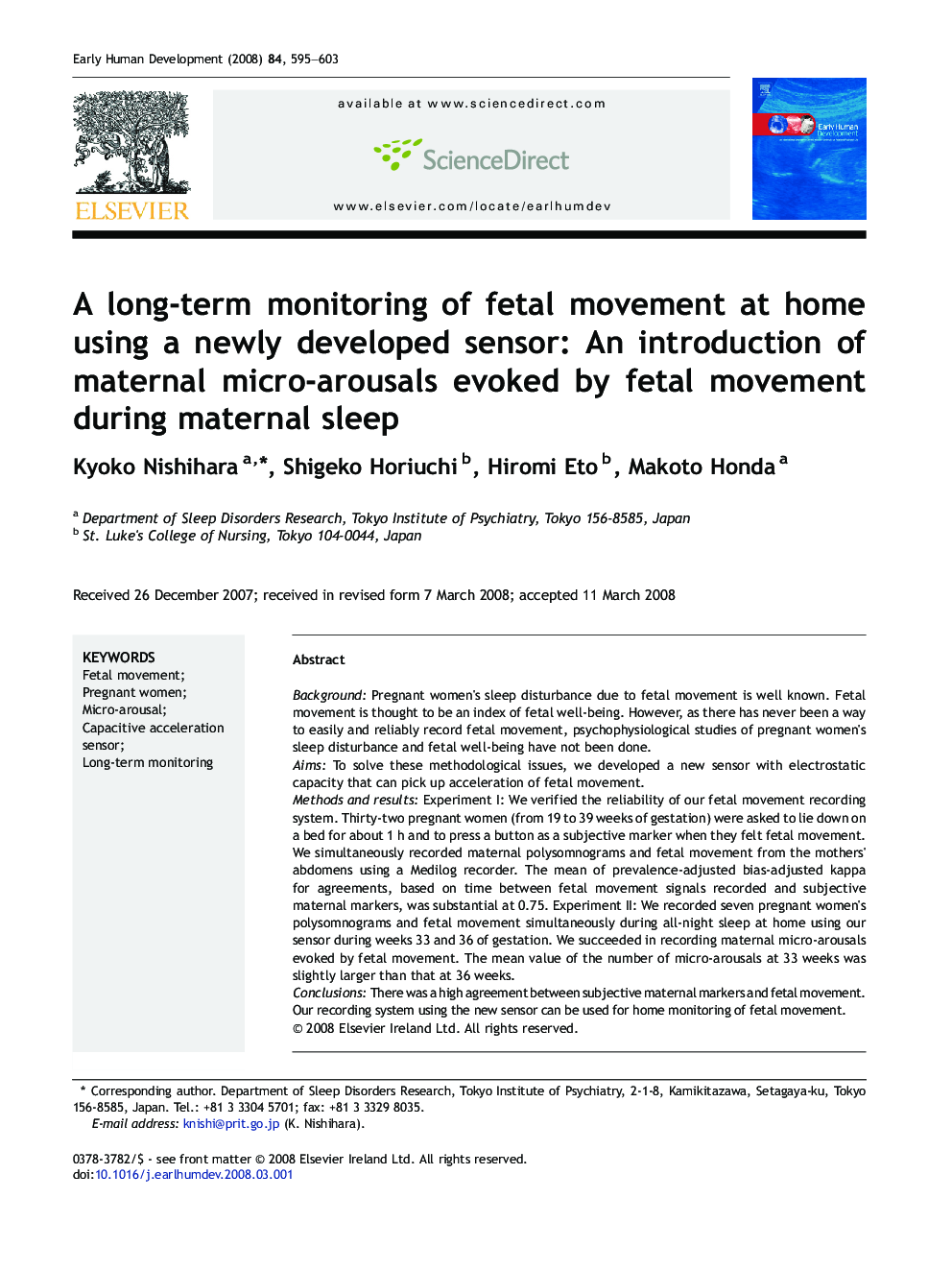| Article ID | Journal | Published Year | Pages | File Type |
|---|---|---|---|---|
| 3917068 | Early Human Development | 2008 | 9 Pages |
BackgroundPregnant women's sleep disturbance due to fetal movement is well known. Fetal movement is thought to be an index of fetal well-being. However, as there has never been a way to easily and reliably record fetal movement, psychophysiological studies of pregnant women's sleep disturbance and fetal well-being have not been done.AimsTo solve these methodological issues, we developed a new sensor with electrostatic capacity that can pick up acceleration of fetal movement.Methods and resultsExperiment I: We verified the reliability of our fetal movement recording system. Thirty-two pregnant women (from 19 to 39 weeks of gestation) were asked to lie down on a bed for about 1 h and to press a button as a subjective marker when they felt fetal movement. We simultaneously recorded maternal polysomnograms and fetal movement from the mothers' abdomens using a Medilog recorder. The mean of prevalence-adjusted bias-adjusted kappa for agreements, based on time between fetal movement signals recorded and subjective maternal markers, was substantial at 0.75. Experiment II: We recorded seven pregnant women's polysomnograms and fetal movement simultaneously during all-night sleep at home using our sensor during weeks 33 and 36 of gestation. We succeeded in recording maternal micro-arousals evoked by fetal movement. The mean value of the number of micro-arousals at 33 weeks was slightly larger than that at 36 weeks.ConclusionsThere was a high agreement between subjective maternal markers and fetal movement. Our recording system using the new sensor can be used for home monitoring of fetal movement.
